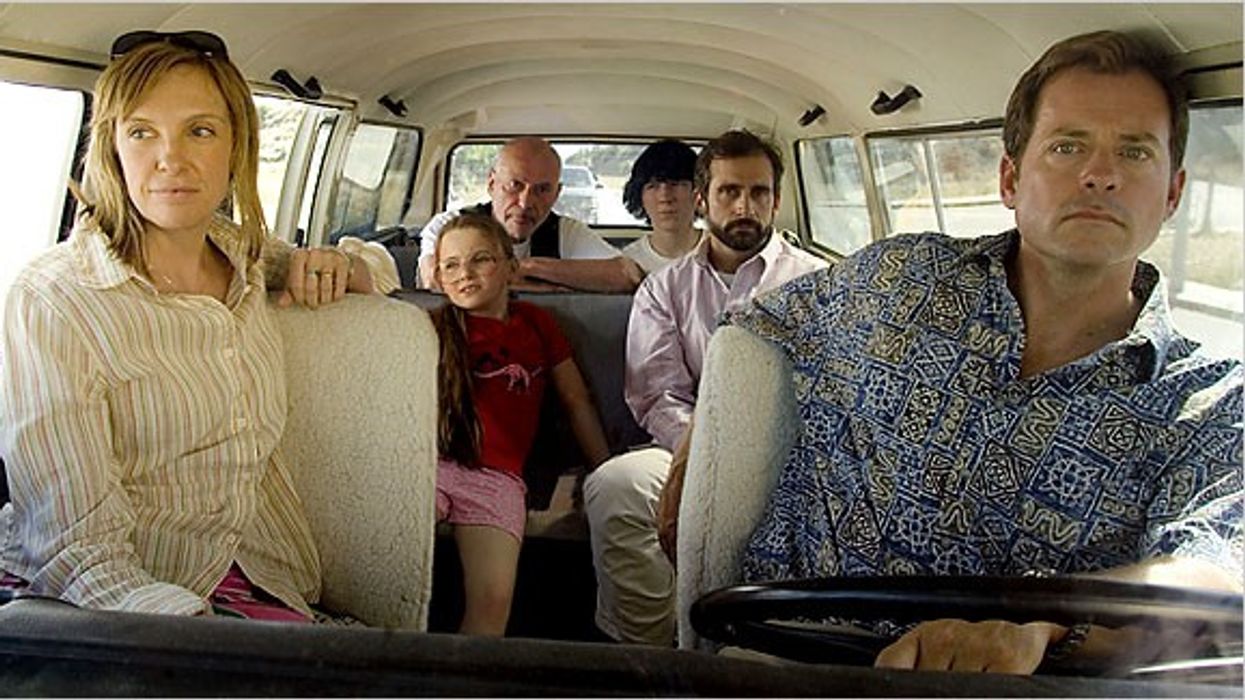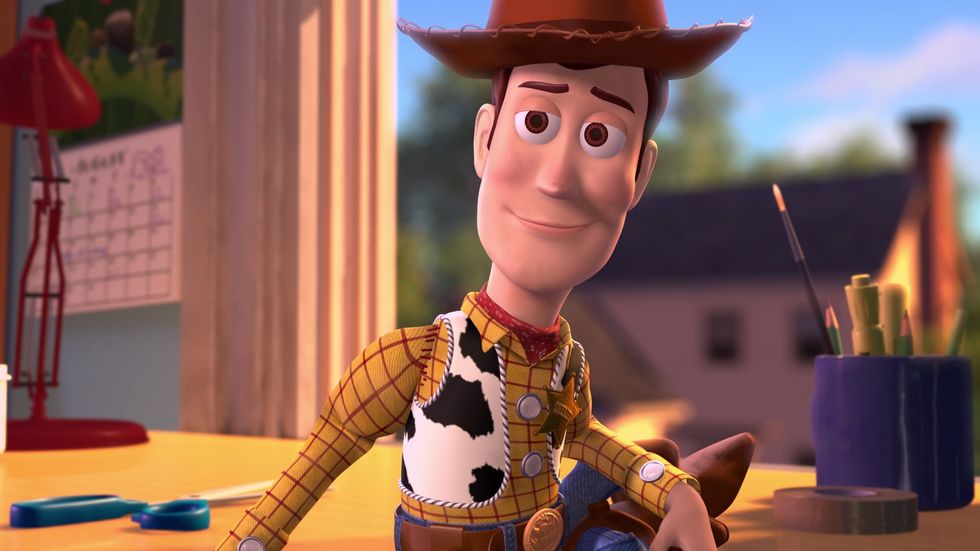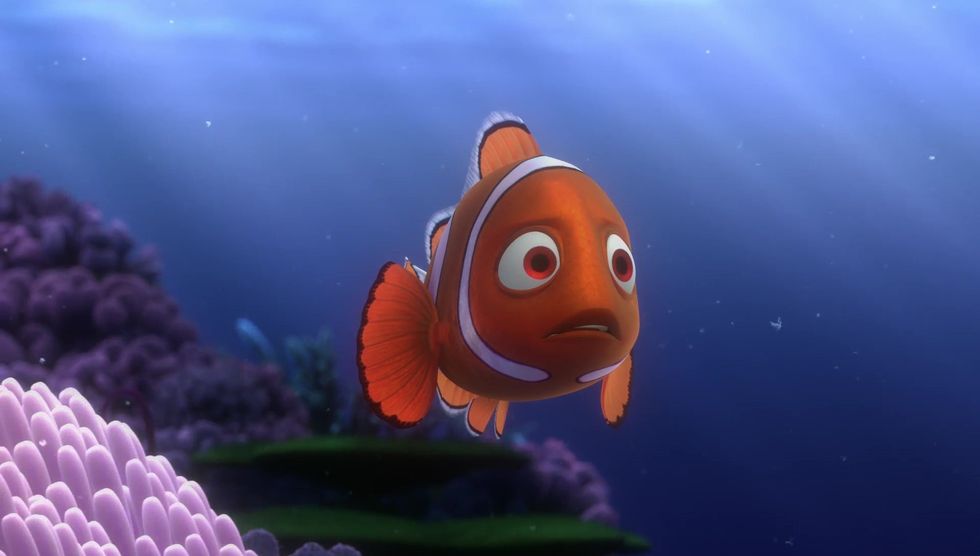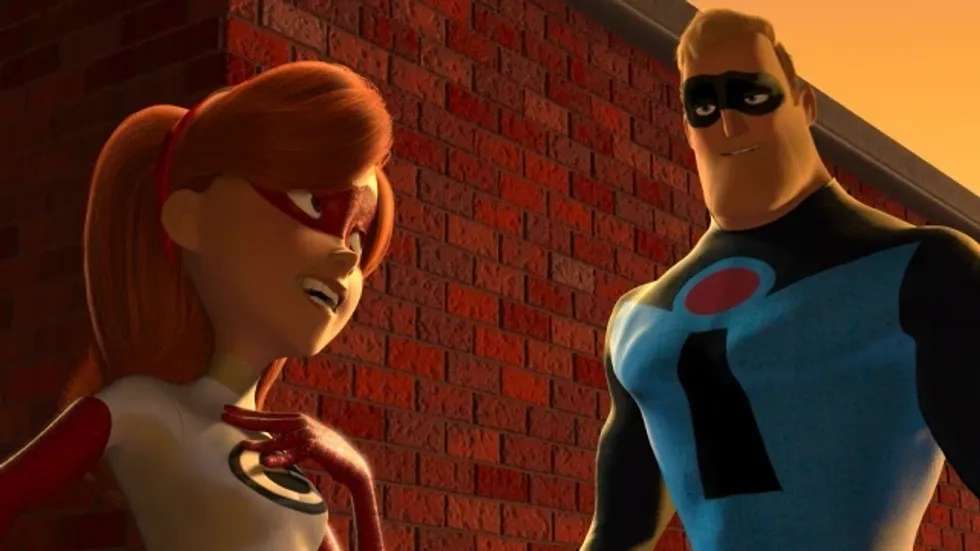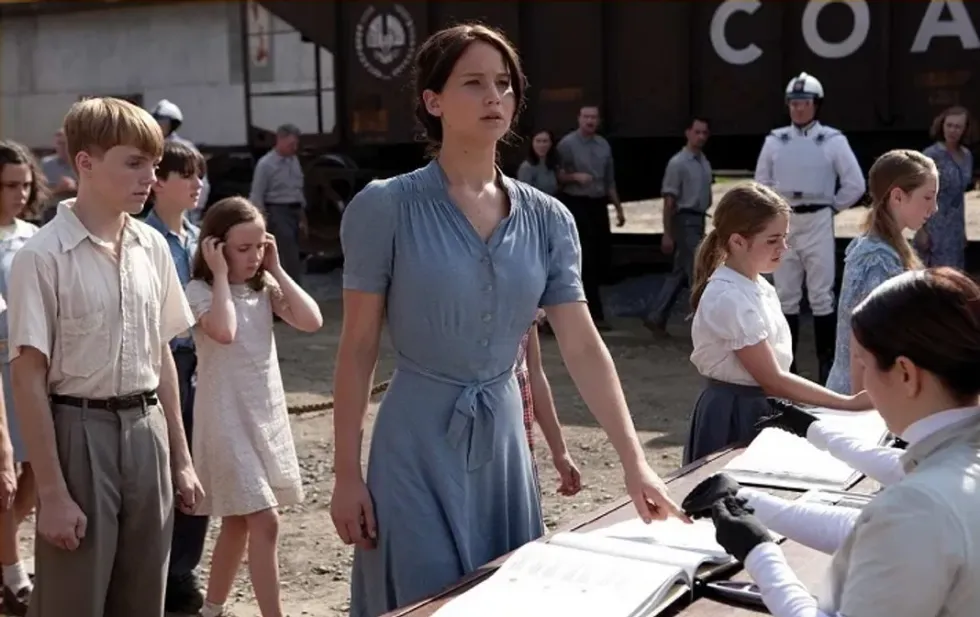'Bobby Sands 66 Days': The Film BBC Might Not Want You to See
Brendan J. Byrne was not afraid to make a deeply controversial movie.
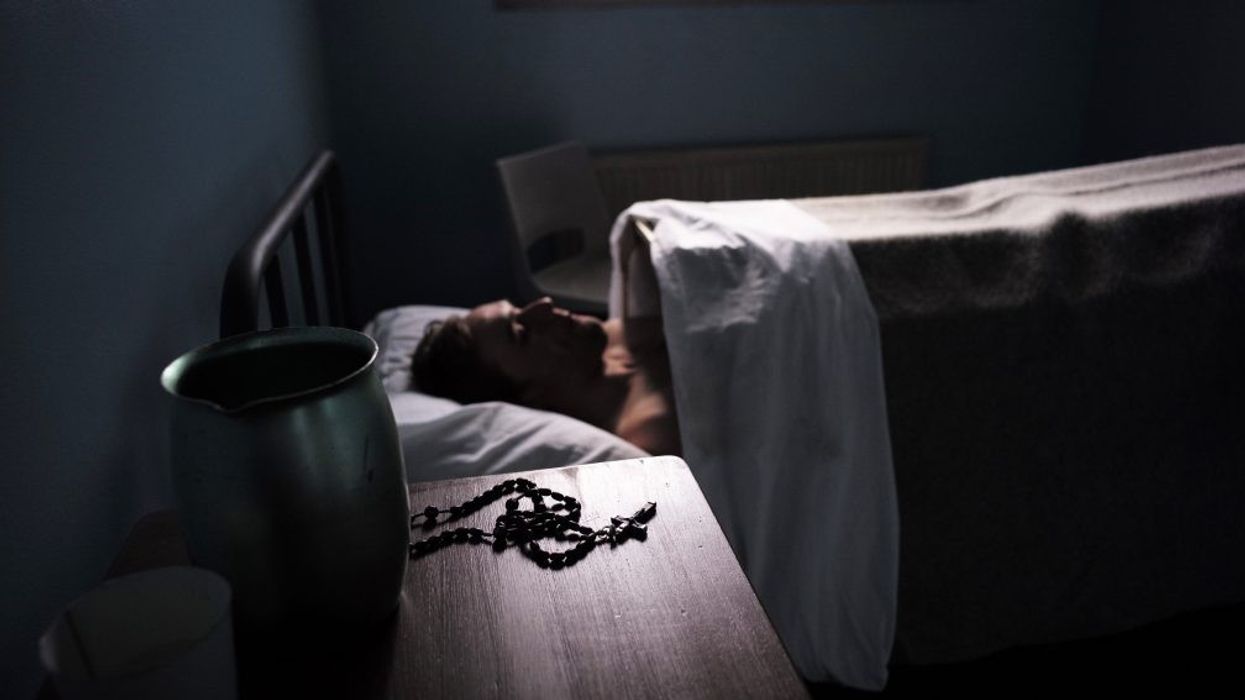
"It is not those who can inflict the most, but those that can suffer the most who will conquer." This quote from Irish playwright Terence MacSwiney is the prevailing sentiment in Brendan J. Bryne's achingly heartfelt exploration of Bobby Sands’ 1981 hunger strike.
At the fever pitch of a centuries-long battle between the Protestant English and the Catholic Irish, Sands used his body as the ultimate means of protest. Though he was young, he had committed his life to the IRA, and was ready to die for its message. Bobby Sands starved for 66 days in an Irish prison in an attempt to gain rights for his fellow political prisoners. Bobby Sands 66 Days takes a sympathetic look at this man, who became a symbol at 27.
The nationalist conflict is unresolved to this day, making Bobby Sands 66 Days a subversive film. It follows, then, that its US premiere would be in the "Fight The Power" programming segment of DOC NYC. The film made its North American premiere at TIFF 2016 and is one of the most successful films to ever come out of Northern Ireland.
"The BBC is slightly frightened by the potential impact [this will] have on its audience."
No Film School spoke with Byrne after his premiere about the challenges of making a mostly archival film, negotiating with the BBC, the political implications of documentary filmmaking, and his newest project, about a mass burial ground just 16 miles from Manhattan.
No Film School: You mentioned in the Q&A last night at DOCNYC that there isn't a single piece of video in existence of Bobby Sands. How early did you know that? How did you work around it?
Brendan J. Byrne: I was aware there was no footage of him because if it existed, I would've seen it. The thing that's famous about Bobby Sands is probably a gable wall painting of him. And that's the thing that's always repeated in the media. So there was no visual image there, and I knew that would give us a challenge.
"As a documentarian, in the end, stories pick you rather than you pick stories."
How do I make a film about this guy? You don't see him. There are very few pictures of him. All the pictures of him were before he was 14, which the family controls—they don't share them with the media. So there's only about 20 in the public domain. Early on I thought I'd do some sparing reconstructions—obviously, no talking—to create the sense of this prison cell. The diary was the central spine of the film; we knew we were going to use lots of that. So that's what brought us to the limited reconstructions and the animation—those were the two key elements that replaced any other archive.

NFS: So much of the film was other archival footage, though. Can you speak to your process? Did you find the footage first and then shoot your interviews or vice versa?
Byrne: Nine months before we actually started full production, I met with the archive producer and I said, basically, there are three things here: the 66 days, so find whatever you can specific to all of those 66 days. As it turns out, there wasn't much material there other than just the big news headline stuff. Then, archive from all aspects of the conflict, because we knew we were going to use it visually. Then, we talked about looking for cool stuff—slogans on a wall, good archival that hadn't been seen before. Visual storytelling as opposed to wallpaper.
"Every shot of archive had to feel as if it was saying something."
The truth of the matter is [that] I didn't watch all that archive, but I was clued in enough to make sure we had oodles of it. And then I allowed my editor to play with it. Once he started working it in, we started talking about how it should be a visually consistent factor throughout the entire film. And we came up with a couple of rules about how and when you would use it, and how you would never use anything that you'd ever seen before if you didn't have to. And how every shot of archive had to feel as if it was saying something because of what was in the shot, as opposed to just being stucco-plaster.
NFS: This is obviously still a very contentious issue between Ireland and England. How did you first get the BBC on board? Did they provide any limitations or feedback to you?
Byrne: The BBC were on from the beginning. We have a good relationship with them—they know us well, they like our work.
But yeah, you could say it was almost reluctant. They knew it was a serious subject and it hadn't been tackled properly in documentary before. They knew we could probably do it well, but they were nervous because they're a broadcaster. All they really think about is what's going to happen when they broadcast the film. Where are their criticisms going to come from?

Byrne: We're very fortunate to have two parts of the BBC involved: BBC London and BBC Northern Ireland. BBC London via Nick Fraser at Storyville, which is a very well known international documentary brand. Nick Fraser is a very well known international documentary czar, for want of a better word. So when he got behind the film, he wasn't worried about all that difficult political stuff. He loves all that, so he actually calmed the nerves of BBC Northern Ireland quite significantly. Without him, it could've been a jumpier ride. Now, once we'd almost finished the film, as you do with your funding executives, you show it to them.
NFS: What do you mean by that?
Byrne: Well, it was not saying that it agreed with what Bobby Sands did in terms of being in the IRA. But it was a sympathetic portrait, and I think that made them feel nervous. They tried to persuade me in certain areas, where possible, to turn up the level of balance.
"'Balance' is a bad word in documentary because balanced films are boring films, normally."
"Balance" is a bad word in documentary because balanced films are boring films, normally. And with something like this, you could make a really boring, dry piece of nonsense because you're so worried about offending people. So they were a bit on my conscience to make sure that I found a voice in the film that was not afraid to be sympathetic to Bobby Sands, but that was rounded and balanced and took in all the other opposing viewpoints. Without those viewpoints drowning out the central core.
So they were useful in that respect, but the BBC had some problems. They didn't come to the premiere in Northern Ireland, and the film's a big box office success now. It's because they didn't want to be seen there. They're kind of hiding until it's on TV, and when it's on TV, they'll get a bit of a kicking. And they'll say, you know, "We're a national organization we have to reflect all sides of the conflict. This is a legitimate subject." But they're not out there waving flags from the rooftops saying this is the best film they've ever made because parts of them are slightly frightened by the potential impact it'll have on its audience. No matter how good and how balanced the film is.

NFS: Are you saying that the BBC was the motivation for interviewing Margaret Thatcher's cabinet?
Byrne: I did her biographer and cabinet guy, yeah, Charles Moore and Norman Tebbit. Originally I had Normal Tebbit in it, and he was kind of strong and that was good. But Margaret Thatcher is the pariah in this story, let's say. So, I felt it that was unfair, and that we had to have a more rounded portrait of her.
We had to persuade her biographer at length to take part. Naturally, he said, "Why would I want to get involved in a film about Bobby Sands? These guys put me in this film, god knows what way they're going to edit me, etc., etc." You know, he's a sort of sitting duck. But the inclusion of him, I think on our part, then means that A) he has very interesting things to say, and B) we give the audience an understanding of Margaret Thatcher's real motivations.
"Filmmaking's a way of exploring interesting ideas and looking at dark periods in history to help us understand who we are."
I suppose one of our BBC guys, the BBC Storyville guy, was very keen that we get Charles Moore, and we talked to him for about a year before he did it. But he did it in the end. Because the BBC wanted him to be in it, we worked very hard to get him in it.
NFS: What did you end up saying that convinced him?
Byrne: Well, that's a good question. I think it was more to do with perseverance. We asked him a couple of times and he said no. He was writing the second volume of Margaret Thatcher's biography, and he kept on saying he was too busy, too busy, too busy. He couldn't do it up until September, which was the first cutoff point we gave—we gave him 'till September and said otherwise the film would be finished. It turned out that the film got delayed by six months. And we approached him again at the 11th hour. We'd already been editing 20 weeks, so he was the last interview we did.
I think he was impressed that we kept approaching him. And the last time, we really did say, "Listen, we want you because we don't want Margaret Thatcher to come across as a kind of stereotype here. We know that you can give it a more rounded, contextual understanding of what her role and motivation was. And we're really keen to have that in the film. And you're the only person we know who can give it."
He kind of went, "Okay, yeah."

NFS: What has the reception—not in terms of box office, but the reception emotionally and politically—been like in Ireland?
Byrne: It really has taken me by surprise. I knew obviously it's an emotive subject, and I knew there would be interest. There's a kind of peace [currently in Northern Ireland], but there's no real reconciliation. So the two opposing parts of the government, at the minute, haven't set up anything like a Truth and Reconciliation Commission. And everyone's got stuff to hide—the British Army, the IRA... so, it's a very difficult sort of Pandora's Box that nobody wants to open. Or the politicians think that nobody wants to open it.
"I don't wake up in the morning and think, 'I want to change the world. I have to make a documentary.' I just love finding meaningful stories."
The film went into that space. And what surprised us all was that the audience was saying, "We are ready for this. We want this." The younger generation, without the baggage of having lived through it, is more than capable, able, interested, articulate, and passionate. They want to see this. They want to look back and go, "What happened here?" So we've been amazed at the strength of feeling that the film has generated, and the passions it has arisen.
NFS: In the film, you mention media as a key propellant in the revolutionary fight. Do you view documentary film as a form of protest? Do you view this film as a protest?
Byrne: Documentary can be a protest, but I don't view the film that I made as a protest. I just view it as a way of explaining, in an entertaining and a kind of intelligent way, Ireland and what happened to Ireland in the 20th century. Obviously, you can't tell all the stories, but it gives you a sense of the passions and ideals that certain people believed were worth dying for. Rather than being a protest, it's an example of somebody who took a stand at a moment in time to challenge a very, very powerful government.

Byrne: Sometimes protest films can get a bit too polemic and it becomes about the issue rather than the film. Filmmaking's a way of exploring interesting ideas and looking at dark periods in history to help us understand who we are. I'm not a polemicist myself, so I don't see it as a protest film.
NFS: What would you say about the documentarian's role in times of political unrest?
Byrne: Well, funny enough—and, now, I wasn't really thinking about this—but a couple of documentarians told me last night in the wake of what's happened here this week—
NFS: The election results—
Byrne: Yeah, they were saying that they think they're going to be very busy for the next four years. And I thought, well okay, but a part of me was thinking, "That's kind of depressing."
I think it's almost like the original BBC values: educate, entertain, inform. I don't wake up in the morning and think, "I want to change the world. I have to make a documentary." I just love finding meaningful stories.
"There's something about the capitalist society: the very thing that makes this place great is also the very thing that can make it slightly inhumane."
I'm doing this film now about this cemetery up above Manhattan, and I think I'm doing that because I love America and always have. I think this film is an alternative history of America. I don't know exactly what I'm saying yet, but it's partly about saying that whilst I love this city, this is a film about the people who got crushed in the rush to build this great place. And there's something timely about that because the president is Donald Trump. This city is built on property. If you didn't succeed, you died. There's something about the capitalist society: the very thing that makes this place great is also the very thing that can make it slightly inhumane.
NFS: Since you brought it up, can you explain more about your new film?
Byrne: For 150 years, anyone who died, and didn't have any family members, or could not afford a proper burial in a cemetery, was given what's called a city burial—basically, buried in mass unmarked trenches on an island about 16 miles from here. It's New York's Potter's Field on Hart Island. Potter's Field comes from St. Matthew's Gospel; it's a place of burial for the poor and indigent. There are one million New Yorkers who've been buried up there.
So it's a film about this cemetery, and what's interesting about this it is that it's run by the Department of Correction, so it's a prison for the dead. And it's a very cruel and inhumane way of treating the dead. There's this kind of macabre undemocratic, un-American form of burial going on in the shadow of the world's greatest city. New York's too good for that. But we're allowing it to happen.

Byrne: It's being told, actually, with many of the same elements of the Bobby Sands film. We knew there was going to be a lot of archival footage. We can't get on the island—it's forbidden to press, has been since 1990. But, you know, there's some archival over the years, some photographs, and we've got a number of contemporaneous characters who have loved ones buried there. So it's a film about the dead told by people who are very much alive. And, as I said, it's a portrait of America.
NFS: It seems like you have some experience in setting yourself up for great challenges, in terms of topics that don't have a lot of access points. Do you have any advice for how up-and-coming documentarians can handle these sorts of situations? And how they should approach their careers in general?
Byrne: You can't risk everything because everybody's gotta eat. But I think you've gotta try to stay true to what you want to do and try not to be veered off course as best you can. Because if you get veered off course, it takes you twice as long to get there.
"If you lose the flame for a film, it's never going to be any good."
I think as a documentarian, in the end, stories pick you rather than you pick stories, in some ways. And they kind of chime with who you are. When I look back at most of my stuff, I suppose threaded through all of it is a sense of injustice. They're often stories about people overcoming injustice. But they're not done in a polemicist way of protest, of fighting injustice and following a campaign. They're individual stories that tell the story of an individual at the heart of an injustice. I'm drawn to those because I'm impressed by people like that and I admire them.
I think you kind of have to find a bit of a groove, or you have to know what it is. You can't make five or six totally different films because there's not enough of you in them and none of them will ever really stick out. So it's not a magic formula, but you have to be true to your own instinct and you have to have a passion underlying the story because it takes a long time for you to get there. And you can only get there if you really believe in it and you want to spend the time. If you lose the flame for a film, it's never going to be any good. So work hard, keep your head down, and make good choices.
See all of our coverage of DOC NYC 2016.
Featured image: Michael Fassbender as Bobby Sands in Steve McQueen's 'Hunger'
'66 Days' opens on November 30 at Film Forum in New York.
